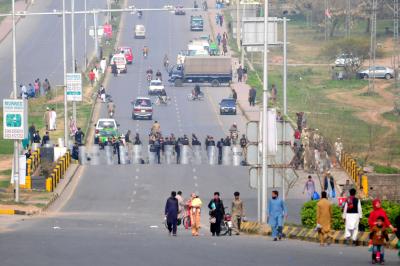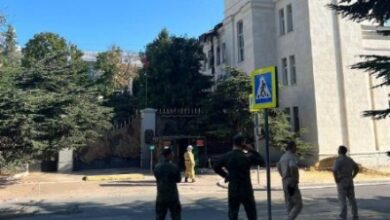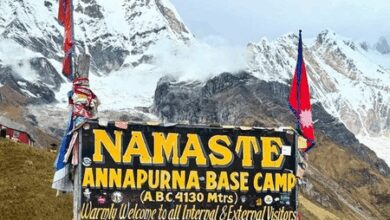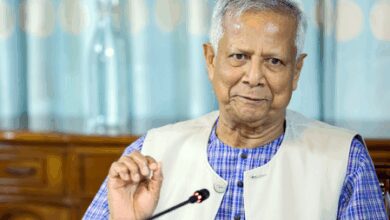TLP protests expose Pakistan’s weak governance, shift towards extremism: Report

Islamabad, Nov 10 (IANS) Successive Pakistani governments’ failure to create adequate employment opportunities for youth, coupled with rising wealth inequality, and the broader tilt in national politics towards right-wing extremism, have made the Tehreek-i-Labbaik Pakistan (TLP) a formidable challenge in the country, a report said on Monday.
According to the report by Afghan Diaspora Network, Pakistan has been rendered helpless three times over the past decade before the TLP, as the extremist organisation paralysed major cities through protests, marches and sieges.
“The recent protests by thousands of TLP workers over the Gaza issue led to traffic blocks, the suspension of civic and transport services, and the cutting off of the capital city of Islamabad from the rest of the country. Yet, no tangible action was seen from the government. It is reminiscent of what had happened in 2021 when the TLP had laid siege to Islamabad for ten days, while the Pakistan government and military appeared vulnerable and feeble. The far-right Islamist party wields huge influence in the country,” it detailed.
Noted Pakistani journalist Fahd Hussain accused the Pakistani government of weak governance and inaction as TLP personnel went on a rampage, vandalising public property, killing policemen and challenging the sovereignty of the country.
“The government waited, and watched, and stayed silent — even the most voluble brigade of spokespersons — in face of this anarchy. In Islamabad, high officials and their political bosses struggled to hide their nervousness under the garb of silence,” Afghan Diaspora Network quoted Hussain as saying.
The report emphasised that citizens held the political leaders of Pakistan responsible for the recent crisis.
“The absolute paralysis imposed on the country’s capital, Islamabad, for more than the last 48 hours by the state’s own Frankenstein monster, TLP represents failure of the state,” said former Pakistani legislator Afrasiab Khattak.
Many also believe that Pakistan’s powerful military created the TLP to use it as a pressure group or influence the outcomes.
Analysts blamed the civilian government and the military for adopting appeasement policies for political or strategic reasons, enabling the TLP to overpower Pakistan.
“Pakistan has moved precariously closer to a point where hardline Islamist groups and parties dominate the agenda, with state agencies losing a crucial battle in the face of Islamist radicalism. Pakistan’s ruling establishment is wholly responsible for this sorry state of affairs as it has allowed the TLP to propagate its radical agenda unchecked, without learning from past mistakes,” said Vinay Kaura, a non-resident scholar at the United States-based think tank Middle East Institute.
–IANS
scor/as





